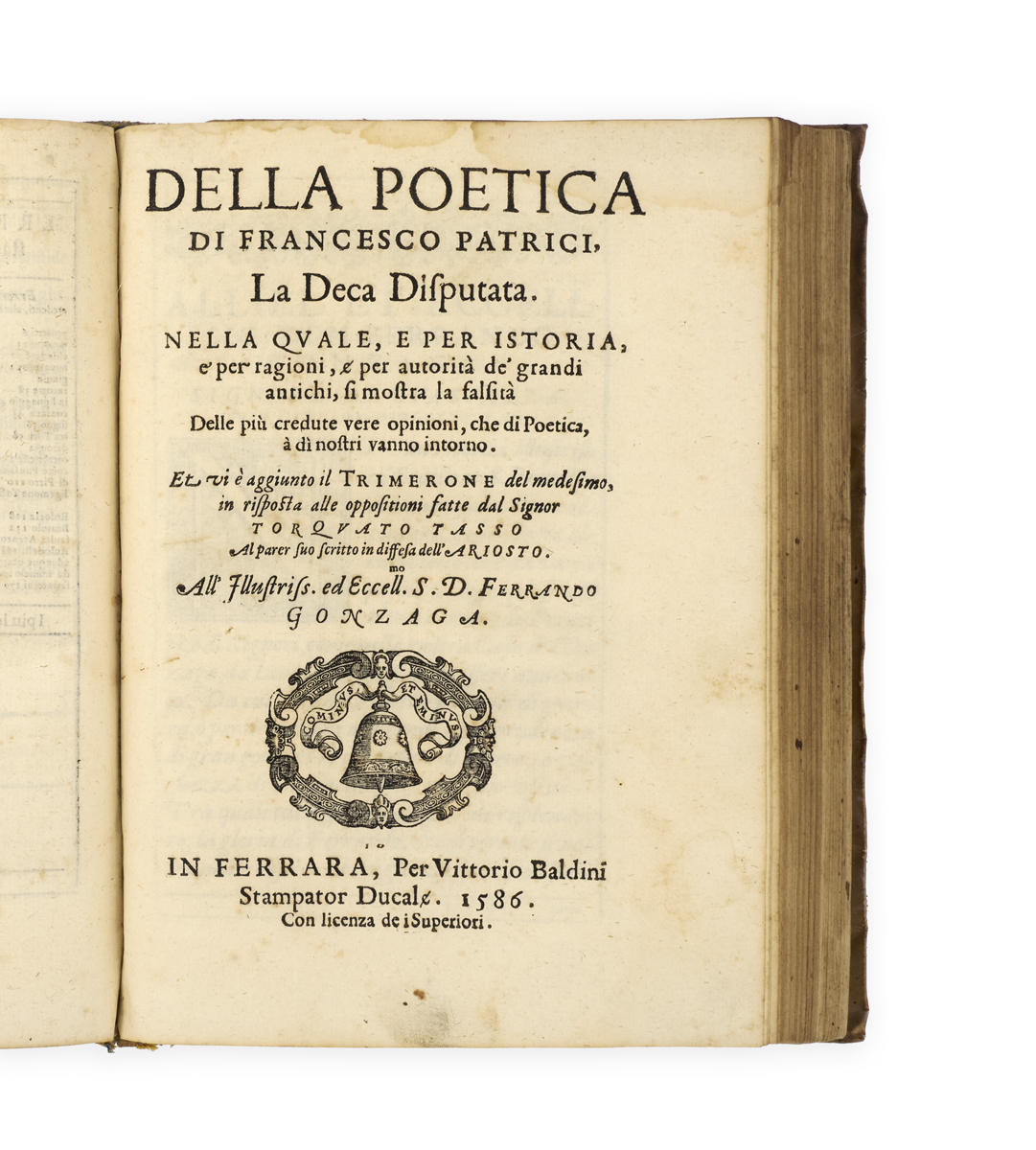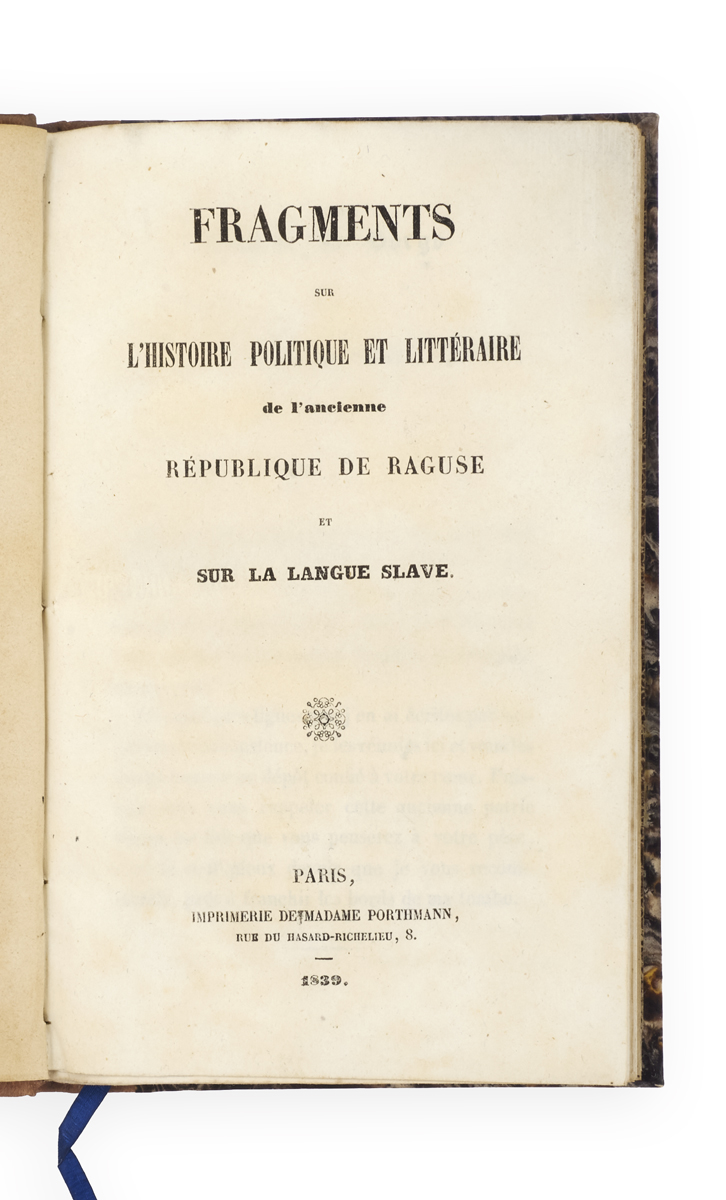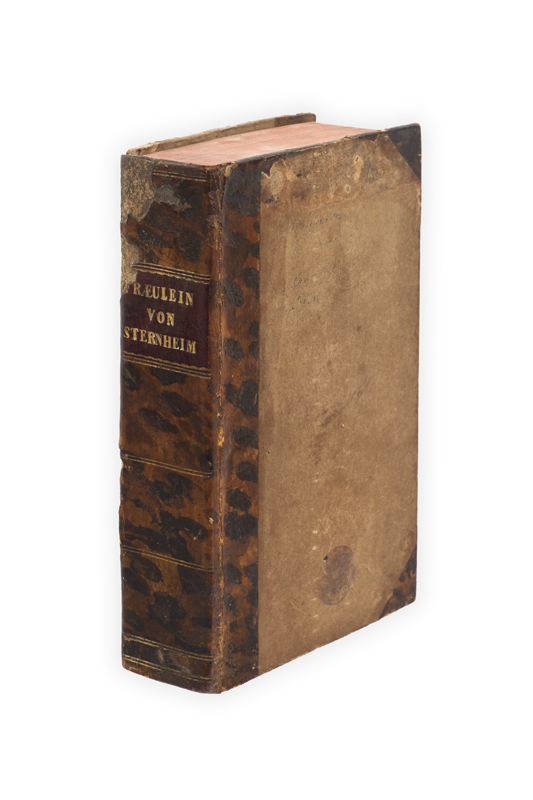


BREAKING STAGE AND VERSE CONVENTIONS
PATRICIUS, Franciscus (Croatian: Franjo Petriš or Frane Petrić, Italian: Francesco Patrizi).
Della poetica di Francesco Patrizi. [Part I: La deca istoriale, nella quale … oltre a poeti e lor poemi innumerabili … si fan palesi tutte le cose compagne e seguaci dell’antiche poesie. Part II: La deca disputata. Nella quale, e per istoria e per ragioni e per autorita de grandi antichi, si mostra la falsita delle piu credute vere opinioni che di poetica a di nostri vanno intorno. Et vi e aggiunto il Trimerone del medesimo in risposta alle appositioni fatte dal signor Torquato].
Ferrara, Vittorio Baldini, 1586.
Two parts in one volume, 4to, pp. [lxiv], 407, [1]; [viii], 250, [6]; a couple of quires a little browned and foxed, but a very good copy in contemporary limp vellum; ownership inscription of Orazio Lombardelli (see below) to the verso of the rear free endpaper, followed by a devotional poem in Latin couplets.

Added to your basket:
Della poetica di Francesco Patrizi. [Part I: La deca istoriale, nella quale … oltre a poeti e lor poemi innumerabili … si fan palesi tutte le cose compagne e seguaci dell’antiche poesie. Part II: La deca disputata. Nella quale, e per istoria e per ragioni e per autorita de grandi antichi, si mostra la falsita delle piu credute vere opinioni che di poetica a di nostri vanno intorno. Et vi e aggiunto il Trimerone del medesimo in risposta alle appositioni fatte dal signor Torquato].
First edition, a copy with contemporary provenance, of a major Renaissance rejection of Aristotelian literary aesthetics.
Patricius was born in Cres, off the coast of Dalmatia, and is sometimes described as Croatian, sometimes as Italian. ‘Francesco Patrizi of Cherso (1529–1597) was a leading critic of the dominant Aristotelianism of the times. Not to be confused with the earlier humanist and political theoretician, Francesco Patrizi of Siena (1413–1494), Patrizi of Cherso focused his attention on a wide variety of philosophical, scientific, artistic and literary issues, providing in his “New Philosophy” a major alternative to earlier schools of thought and a model which later thinkers such as Galileo Galilei no doubt found valuable in developing the mathematized physics which would prove the dominant force in the rise of early modern science’ (Purnell in Stanford Encyclopedia of Philosophy).
This treatise on poetics rejects the rules and restrictions that had applied to most genres since Aristotle, in favour of an openness to inspiration. This copy was owned by Orazio Lombardelli (1545–1608), a man of letters and pedagogue from Siena, author of several works on punctuation, educational primers, and treatises on rhetoric. It is possible that the Latin verse compositions penned on the rear free endpaper are his own inventions. One is a six-line set of couplets of devotional and penitential sentiments beginning ‘Da venia Petro, veniam mitissime Iesu’, and the other is a single couplet in praise of the Virgin, ‘Dum tibi ad Elisabeth…’.
BM STC Italian, p. 493; EDIT16 30129.

